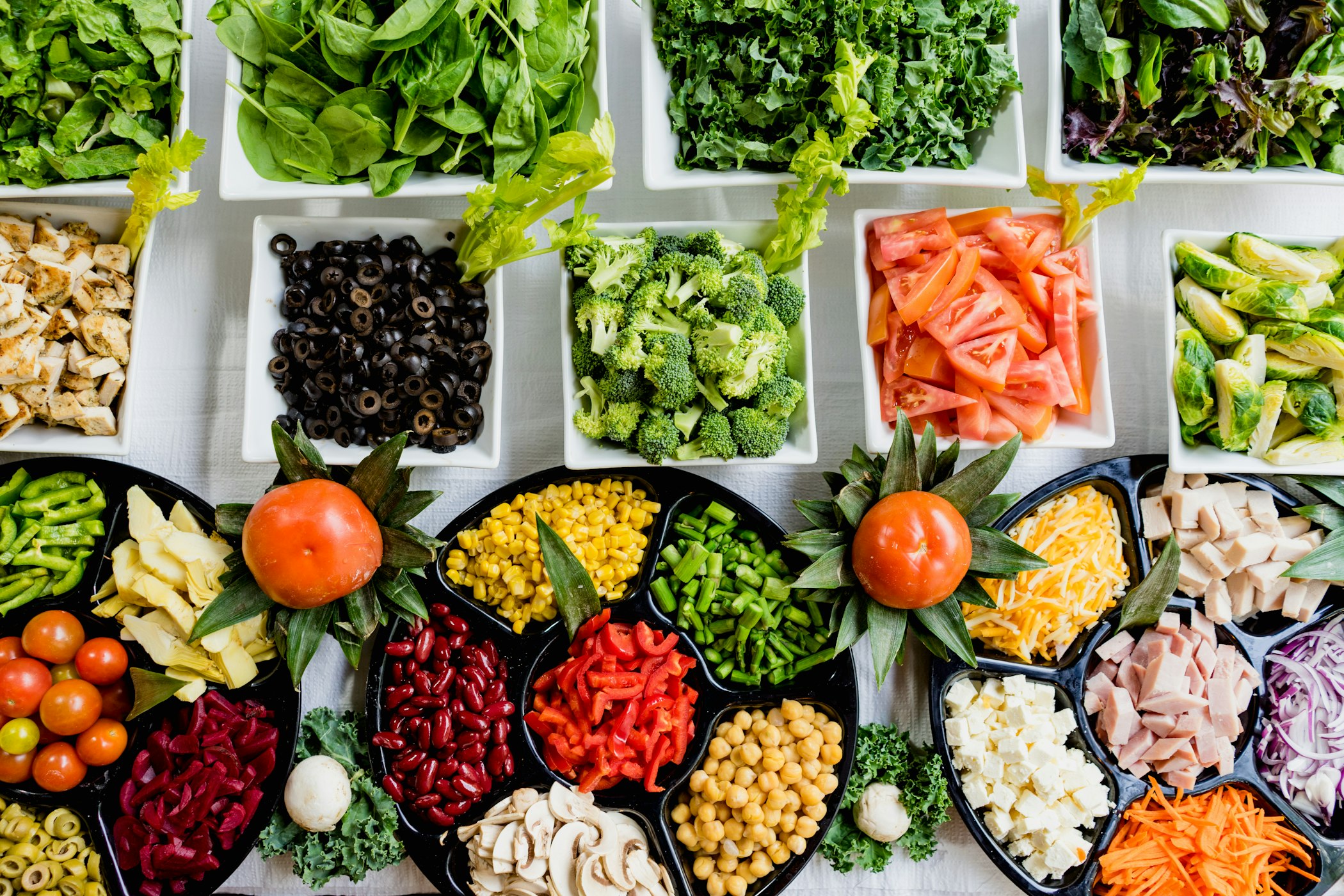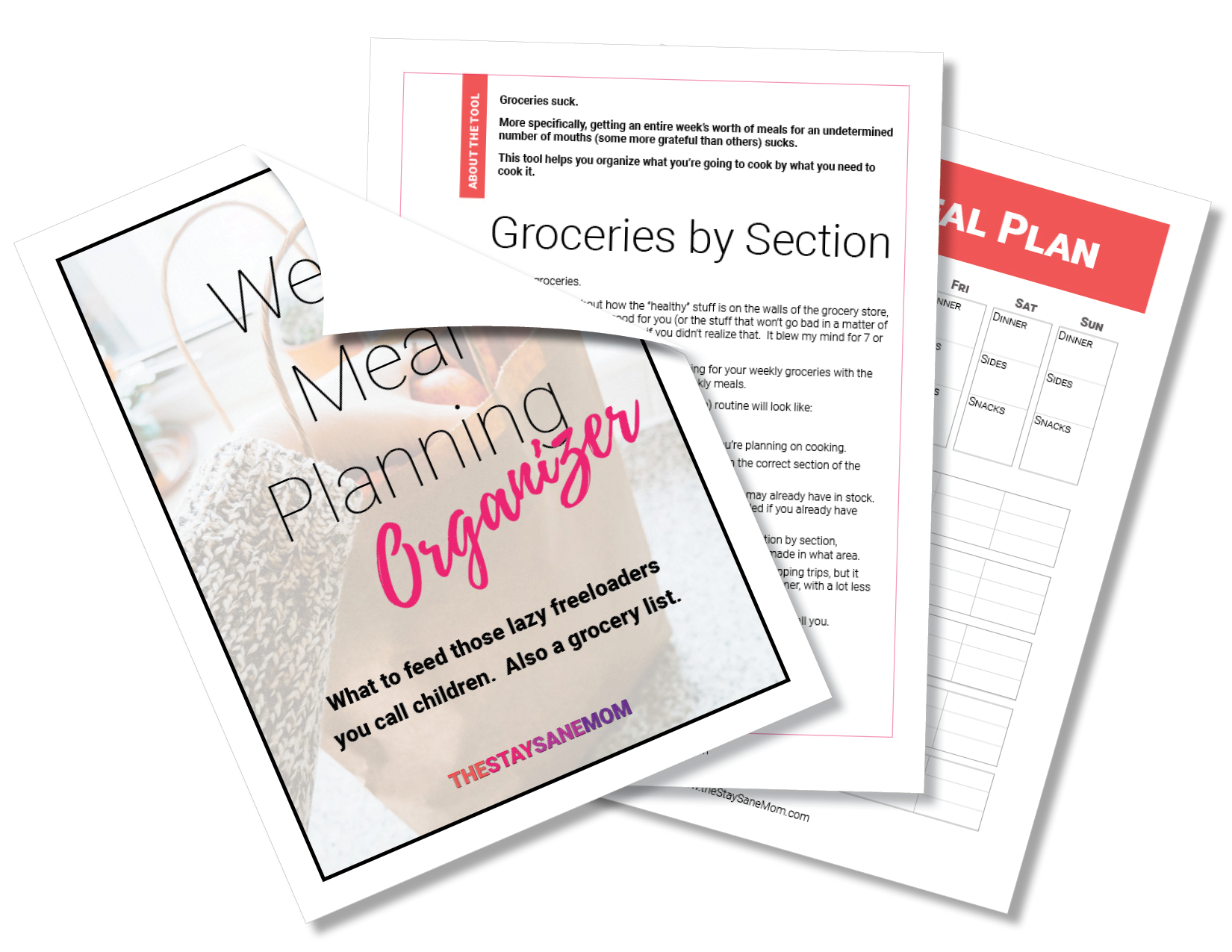How to Get Your Kid to Eat Healthy

How to Get Your Kid to Eat Healthy
We all know kids secretly only eat chicken nuggets and macaroni and cheese. Their bodies reject anything green. Sometimes violently. Here's how to game the system.
Written by Liz Bayardelle, PhD | See Comments | Updated 04/08/2021
Want to cut to the chase?
Weekly Meal Planner

How to Get Your Kid to Eat Healthy
This post contains some affiliate links for your convenience. Click here to read my full disclosure policy.
As a parent, your job (okay, one of your million jobs) is to ensure that your kids stay as healthy and as happy as they possibly can.
Unfortunately, this includes the fundamentals of nutrition as well. In theory, when they’re super-small, you’ll give them the fundamentals that all babies should have. The different kinds of formula and dedicated products are all part of the journey.
In reality, the second they learn what a straw is, they start stealing sips of your soda. As soon as they figure out that their chubby little fingers can shove things in their mouths, they begin hoovering up crumbs of whatever is in front of them (whether it's healthy food, fried foods, abandoned legos, dust bunnies...it all goes straight in the mouth).
Fortunately, they do (eventually) learn what is and is not food. Carrot = food. Lego = not food. (Kale = sort of food? Mom's still working that one out, to be honest.) Unfortunately, they don't have the same gift for automatically sussing out what is unhealthy food as they do for figuring out what isn't food at all. Most kids eventually stop attempting to gum the ears of household pets all on their own. You will, on the other hand, need to pry the bag of Cheetos out of their grubby little fingers and teach them that vegetables are not the enemy, or they will quite possibly live their whole lives thinking that ketchup is a vegetable. (I mean yes, technically, but probably don't put it in a salad.)
Why Does Healthy Food Matter for Kids?
What they eat matters an awful lot when they’re growing up. You will not want them to have any issues regarding the nutrients they take in as it can have a severe impact on their mental and physical well-being. If you can help them to eat healthily, then that will give them a great foundation to work with going forward.
Whatever habits you set up as "normal" in their minds is what they're going to default to when they're adults. If they automatically go to the snack cabinet and bury their snout in a bag of chips the second they walk in the door, chances are this will become part of their adult routine as well. On the other hand, if you have a tray of fruit casually laying on the counter each afternoon, you can bet that grazing on fruits will be a more regular feature of their grown-up lives.
Basically, kids are a blank slate. Yes, they come with predispositions, but they really are yours to mold. It's tempting to go for comfort foods or unhealthy foods, if for no other reason than there is so much else we have to fight about with these dang kids, but it is important for their long-term eating habits that we at least make a moderate effort to set them on a good path, nutrition-wise.
How Do You Get a Kid to Eat Healthier?
Getting a child to eat cleanly might be a little difficult at times, but there are some pretty simple things you can do to make it a whole lot easier.
Here are some ideas:
1) Be Positive About Healthy Foods
Typically, healthier foods are seen as boring. People often talk about having to grind through them in order to become a healthier person. I cannot stress this enough. I literally named my first book "Clean Your Plate: 13 Things Good Parents Say that Ruin Kids' Lives".
Do not make your kids eat their way through a field of "undesirable healthy crap" in order to get to dessert. I can't go over all the reasons this is a bad idea here (but you can read it in the book), but just know that at best this sets kids up for a lifetime of weeeeird eating habits and at worst it could create a seriously unhealthy relationship to food.
This shouldn’t be the case – make sure your kids never view it like that. Talk glowingly (but honestly) about healthy foods and make sure they see these kinds of foods as nothing other than important. I like the car metaphor. Your car needs gas to get places. If you put quality gas in the tank it will go super fast. If you put the wrong kind of gas in it might work for a while but long-term the engine will clog or break. If you put something other than gas in the tank the car simply won't work.
One of the best ways to promote healthier meals is to make the best of them and to cook exciting stuff. Don’t just create bland meals for them to eat.
2) Set An Example
I say this whenever I talk to parents, but, in my experience, what kids learn is 10-20% what we intentionally teach them (if we're lucky) and 80-90% what they see us doing when we think they aren't watching.
If you can set a good example in terms of what you eat, then you’re going to impart that behavior onto them. If you can't get through the day without a large soda and a bucket of french fries, then they’re going to follow suit. Trust me. My first daughter learned these three English words first...in this order: Mom, Dad, fries. My bad, kid. My bad.
Keep yourself healthy and they’ll want to do exactly the same.
The bonus here is that it does also strong-arm you into a healthier lifestyle. (I know most of us "want" this, but never actually want it. If we have to model it for our kids, yippee, looks like we have to at least fake it.)
3) Try New Things Regularly
If you open them up to new foods, then they’ll get to know what they like and what they don’t like. Kids with bad eating habits often get that way because they’ve been fed the same stuff pretty much every single day single they can remember.
If you were to, say, introduce them to something like a vegan alfredo sauce recipe, then their brains and taste buds would become accustomed to these kinds of meals.
It also helps to let them choose meals and/or help cook them. Kids love control. They love playing grown-up. They love making messes. Woohoo! Let them control what healthy meal is for dinner, put them "in charge" of cooking it, then let them stir crap while you actually cook it. (Or if you have older kids or teens I guess you can let them actually help with the real meal.)
4) Tell Them About How It’ll Benefit Them
If you educate your kids on how these kinds of foods will benefit them, then perhaps they’ll understand why they’re being given them.
You don’t have to go into too much detail, of course.
If you have little kids, talking about how it’ll make you big and strong is probably as specific as you want to get. If you have athletes or older kids you can casually drop in tidbits about the three macronutrients (fats, carbs, and protein) and how most people should get 45-65% of their calories from carbs, 20-35% from fat, and 10-35% from protein. But only go into the level of detail your kids are actually interested in. Giving unsolicited lectures on vitamin absorption is a great way to make your kids tune you out (or put them to sleep at the dinner table).
One caveat: Try not to be negative or punitive about healthy eating. (No matter how tempting it is.) Instilling fear won’t really help, and you run a very real risk of setting up a resistant attitude that'll be even harder to overcome.
5) Allow Them To Earn Cheat Meals
Don’t push cleaner foods ALL of the time.
You wouldn't do this for yourself, so it's very unfair to demand it of your kids. They’re allowed cheat days, too. Perhaps you could let them have weekends where they binge on all of their favorites. By the time Monday rolls around, they won’t want them as much anymore!
One of my mom's favorite sayings was "everything in moderation...including moderation". Yes, most days your kids should eat some kind of vegetable. Cookies should be a "sometimes snack" not a go-to self-soothing alternative. Cake is for birthdays, not Wednesdays (usually).
However, if your kid is having a saliently crappy day and you feel like swinging by Baskin Robbins on the way home from school, go for it. Make it clear that it's an exception to the rule, and then ask for extra oreos on top of the oreos on top of their ice cream. No parenting in the world will condemn you for it.
Start Your Next Step
Weekly Meal Planner

Get Sanity, Delivered to Your Inbox.
Care to Share?
About the Author

Liz Bayardelle, PhD
Founder | Contributor
Liz (or Dr. Mommy, as her toddler started calling her after learning what a PhD was) is the happily sleep-deprived mom of a toddler (and professional raccoon noise impersonator), a sparkle-clad kidnado, a teenage stepdaughter, 200 cumulative pounds of dog, and herd of dustbunnies (if daily vacuuming doesn't occur). During nights and naptimes, she uses her PhD in business psychology as an author, speaker, and consultant. She also serves as an executive and principal for three companies, two of which she co-founded with her very patient (and equally exhausted) husband.






-Budget.jpg)